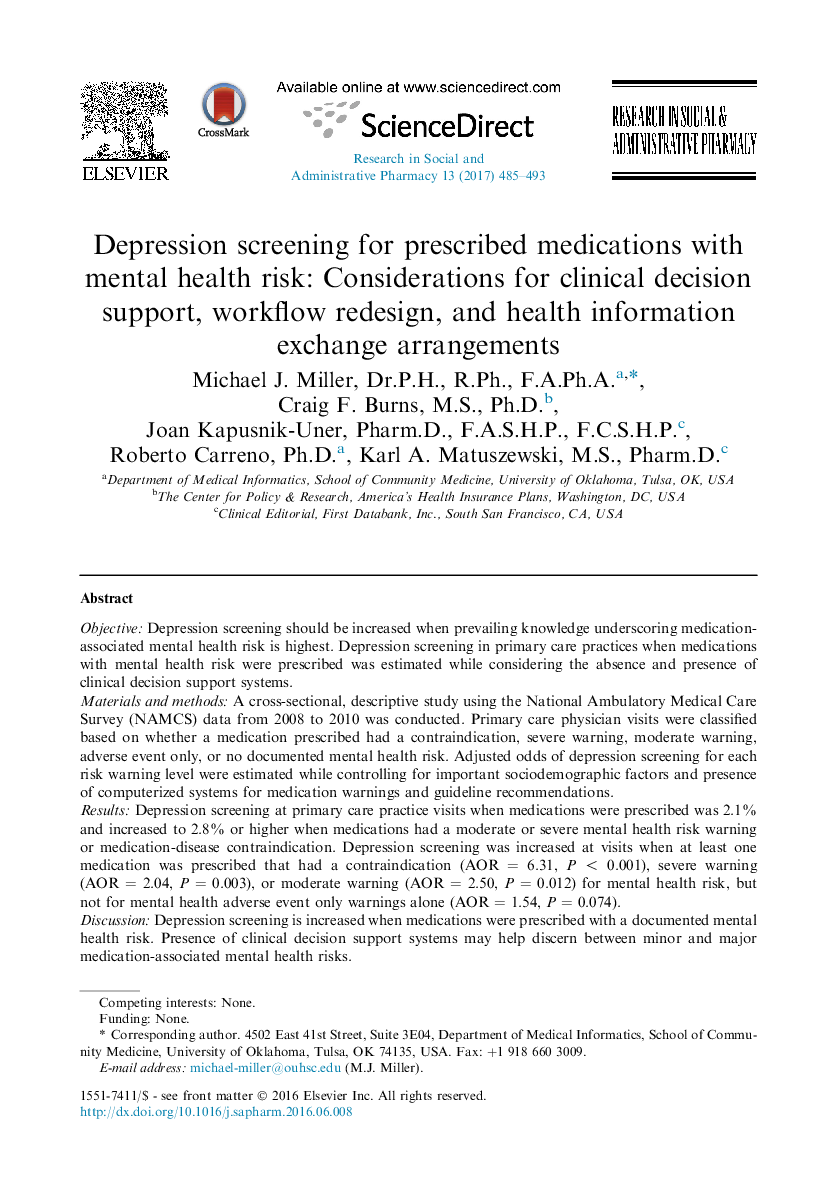| Article ID | Journal | Published Year | Pages | File Type |
|---|---|---|---|---|
| 5551310 | Research in Social and Administrative Pharmacy | 2017 | 9 Pages |
ObjectiveDepression screening should be increased when prevailing knowledge underscoring medication-associated mental health risk is highest. Depression screening in primary care practices when medications with mental health risk were prescribed was estimated while considering the absence and presence of clinical decision support systems.Materials and methodsA cross-sectional, descriptive study using the National Ambulatory Medical Care Survey (NAMCS) data from 2008 to 2010 was conducted. Primary care physician visits were classified based on whether a medication prescribed had a contraindication, severe warning, moderate warning, adverse event only, or no documented mental health risk. Adjusted odds of depression screening for each risk warning level were estimated while controlling for important sociodemographic factors and presence of computerized systems for medication warnings and guideline recommendations.ResultsDepression screening at primary care practice visits when medications were prescribed was 2.1% and increased to 2.8% or higher when medications had a moderate or severe mental health risk warning or medication-disease contraindication. Depression screening was increased at visits when at least one medication was prescribed that had a contraindication (AOR = 6.31, P < 0.001), severe warning (AOR = 2.04, P = 0.003), or moderate warning (AOR = 2.50, P = 0.012) for mental health risk, but not for mental health adverse event only warnings alone (AOR = 1.54, P = 0.074).DiscussionDepression screening is increased when medications were prescribed with a documented mental health risk. Presence of clinical decision support systems may help discern between minor and major medication-associated mental health risks.ConclusionsAppropriately, positioned warning systems with targeted content, workflow redesign, and health information exchange may improve depression screening in at-risk patients.
